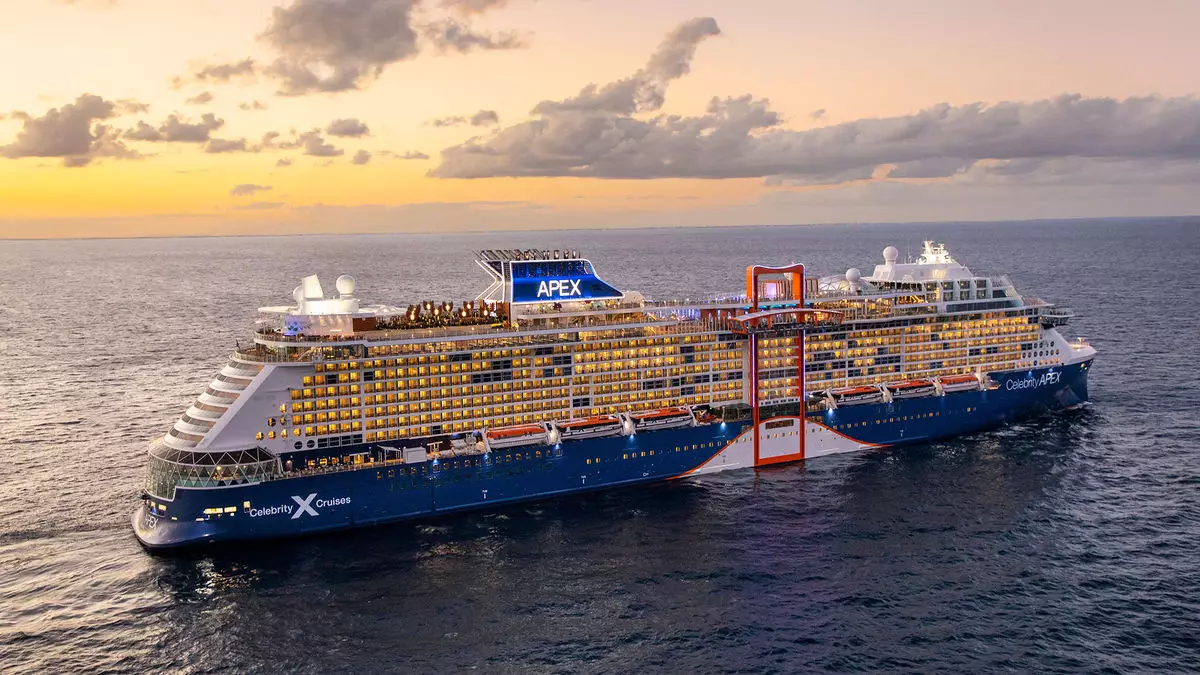In recent years, the travel landscape has undergone a significant transformation, with every niche garnering increasing interest. Among these evolutions is Forbes Travel Guide’s recent foray into the cruise industry, akin to a cautious yet eager plunge into an infinity pool that promises a wealth of opportunities. Traditionally known for its meticulous evaluations of hotels, restaurants, and spas, Forbes Travel Guide expanded its reach into the cruise domain in 2023 by initiating a review process for five cruise ships. The following year saw this number rise to twelve vessels, marking a noteworthy commitment to offering consumers a comprehensive look at cruise experiences.
The driving force behind this expansion is the persistent interest in cruise travel and its growing acceptance among mainstream audiences. This year, the guide will enhance its ratings by focusing on onboard specialty dining experiences, a move that signifies a pivotal shift in consumer expectations. The imminent announcement of six ships recognized for their star-rated dining establishments will place these maritime culinary experiences on the same esteemed level as traditional brick-and-mortar restaurants worldwide.
The decision to embark on this culinary venture has not been taken lightly. Amanda Frasier, the president of standards and ratings for Forbes Travel Guide, explains that the organization’s interest was piqued by the cross-pollination of management expertise between hotels and cruise lines. Notably, as luxury hotel executives transitioned into leadership roles within cruise companies, it became evident that there was a profound investment in elevating the quality of cruise offerings. Frasier highlights this trend as a crucial factor, asserting, “The cruise industry and certainly Forbes Travel Guide were interested in that consistent high level of quality and service.”
This expansion into cruise ship evaluations is further supported by the establishment of rigorous review protocols. Crucially, cruise lines do not exert influence over the evaluations; all assessments are conducted anonymously and adhere to standardized criteria. This impartial approach reinforces the integrity of the ratings and assures consumers of unbiased quality assessments.
However, the cruise industry presents its own unique set of challenges. One such issue lies in the logistics of serving high-quality food at sea, where the configuration of kitchen spaces can be less than ideal. Frasier notes, “Steak cooked to a particular temperature on a ship when the kitchen might be a little bit further away than in a traditional restaurant might be very frightening to a lot of cruise operators.” Such considerations underscore the difficulties that cruise lines face in their quest for culinary excellence, making the attainment of high ratings all the more impressive.
Consumer insights underscore the significance of dining experiences for travelers seeking memorable cruises. Jay Schneider, chief product innovation officer at Royal Caribbean International, points out that culinary offerings consistently rank as the second-most important reason travelers choose to embark on cruises, following the allure of various destinations. In response, cruise lines are adapting to meet these desires with remarkable innovation. Many have begun to collaborate with celebrity chefs to design upscale menus, while others draw inspiration from regional cuisines to create an eclectic gastronomic landscape that appeals to diverse palates.
The forthcoming guide release will showcase a record number of rated cruise ships, building on the foundation laid just two years ago when only five vessels were evaluated. The progression to twelve ships in the subsequent year and the planned expansion of dining assessments illustrate the guide’s unwavering commitment to providing exhaustive, quality-driven insights into the cruise experience. As interest in cruise travel intensifies, the importance of these ratings becomes apparent, not only as benchmarks for quality but also as essential resources for potential travelers and travel advisors alike.
Forbes Travel Guide’s new approach to rating cruise ships and their dining options reflects an evolving landscape of travel and consumer expectations. This initiative promises to shed light on the culinary prowess found within the cruise industry and serve as a guide to discerning travelers. As this sector continues to thrive and innovate, the relationship between quality ratings and consumer choice will prove increasingly vital, establishing new benchmarks for excellence and adventure on the high seas.


Leave a Reply